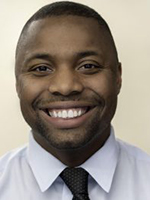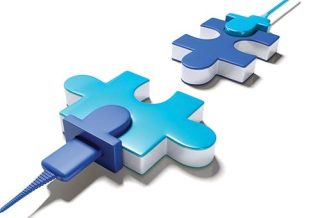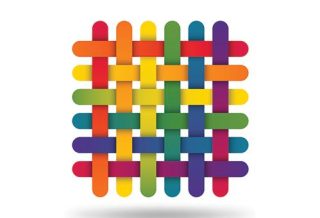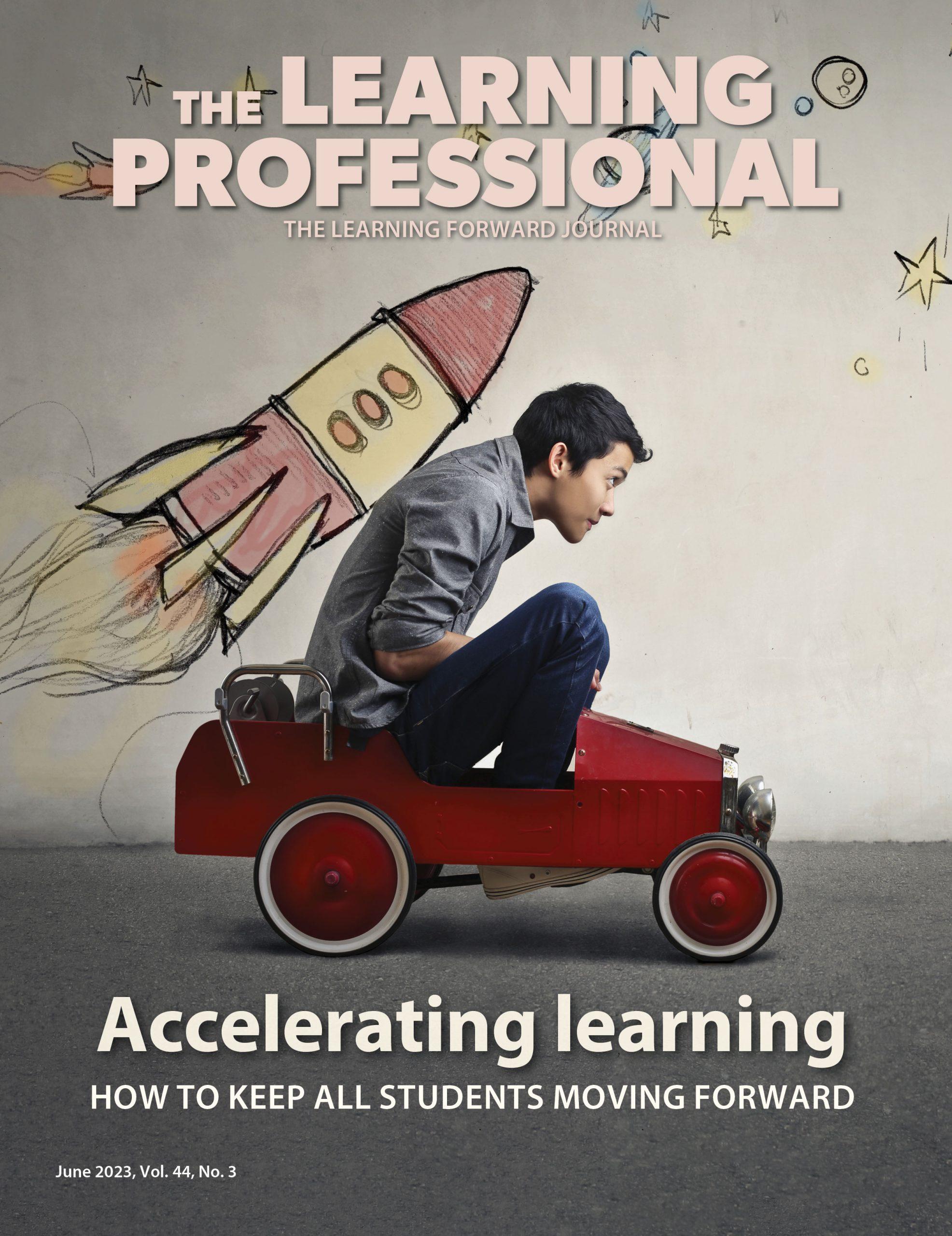FOCUS
How to make students college, career, and community ready
By David Adams
Categories: College- and career-ready standards, Equity, Social & emotional learningAugust 2021
As CEO of the Urban Assembly, a nonprofit organization that oversees a network of 23 student-centered schools in New York City, David Adams knows what it takes for students to succeed not only in school but in the real world. Adams recently shared with The Learning Professional his insights on how social and emotional learning (SEL) is important for academic development, how the pandemic has heightened the urgency of attending to students’ holistic needs, and how professional learning can build educators’ capacity to integrate social, emotional, and academic skills.
Q: Why are social and emotional skills core to teaching and learning?
A: When you look at high-quality teaching interactions, social and emotional skills are embedded. Recognizing students’ social cues helps guide teachers’ pacing. Taking the perspective of learners improves teachers’ feedback. Understanding students helps teachers ground their questions in things that are salient to students’ lives. So much of what good teachers cue in on is about students’ interactions with their work, and that is deeply affected by social and emotional development — for example, how students respond to struggle.
During remote learning, teachers did not have as much access to these cues and information, so it was harder for them to scaffold learning. Students, teachers, and content interact to produce learning. But during the pandemic, that complex interaction was often missing. It was all student to content.
If we equip educators to recognize that their own social and emotional skills are embedded in high-quality teaching, we will not only impact students’ social and emotional development in a positive way, we will also ensure that students are equipped to engage in learning, even in challenging situations like the pandemic. Even if you don’t believe social and emotional development is part and parcel of the education system, it’s an important start to recognize that teachers’ social and emotional competence affects their teaching and therefore students’ learning.
Q: How has the pandemic changed educators’ understanding of the social and emotional dimensions of learning?
A: The social and emotional dimensions of learning have always been important, but during the pandemic, more people came to understand that. They came to see that having students talk to each other helped develop their understanding of ideas and concepts, that the quality of relationships impacts students’ focus and willingness to take risks, that a positive classroom environment helps students overcome challenges, whether they’re intellectual, social, or emotional challenges.
As I watched virtual classrooms, I was shocked to understand — or re-understand, really — how much it matters to have a caring adult in the classroom for pushing student thinking. I saw students struggle to take on the challenges that would help them grow and put them in what developmental psychologist Lev Vygotsky would call the “zone of proximal development.” They would have been more likely to take on those challenges if they had a teacher or supportive peer right next to them.
As we look at how students are going to get back into school buildings after the pandemic-related closures, we need to understand that SEL and academics are deeply integrated. Too often, people have treated social and emotional learning as a separate component of school, thinking of it as a program that teaches skills alongside an academic program that teaches content. In reality, academic learning has social and emotional dimensions, and SEL has academic impact.
''As we look at how students are going to get back into school buildings after the pandemic-related closures, we need to understand that #SEL & academics are deeply integrated.'' @DAdams_SEL #TheLearningPro Click To TweetQ: Many educators are concerned that students have lost academic ground during the pandemic. How do you recommend schools focus on simultaneously developing academic, social, and emotional development next year?
A: For schools that have thought a lot about growth, this notion of learning loss we’re hearing so much about is a strange way of understanding what we need to do to support our young people. Many schools in many cities have had students who were behind grade level for many years. High-quality schools have taken that challenge and focused on individualizing learning for students so they can grow.
At the Urban Assembly, we have prided ourselves on student growth. For example, our students come in with proficiency in English language arts around 23% and, by graduation, about 85% of them are college-ready in ELA. The way we achieve that growth is through attending to all the dimensions of learning.
For the last six years, the Urban Assembly has focused on organizing our schools around the principles of social and emotional development through the Resilient Scholars Program, which provides supports to educators to help them attend to those dimensions in working with young people.
Through the pandemic, we really doubled down on the social and emotional dimensions of the schools because of the engagement challenges many of our students were having. For example, we looked at how advisories were building relationships and how to best leverage those social and emotional inputs for our young people.
We have always had advisories, but, because of the pandemic, we had students in smaller pods. We were surprised to find that when you structure the groups this way, when you provide a frame that says “you are a group,” it facilitates some kinds of interactions that may not have been there before because of differences in grade level, gender, race, or other factors. The intentionality of those groups helped young people build interactions, and through those interactions, they built relationships over the past year.
As we come back into schools in the fall, we will continue these kinds of supports as well as our other supports like social and emotional skill development, restorative practices, and assessing social and emotional development using the DESSA [Devereux Student Strengths Assessment].
But we’re going to do this with even more intentionality about providing students with space to share who they are and build connections with each other and with teachers. It’s these connections and skills that will equip them to solve the kinds of problems they’ll be called upon to address in the world.
Q: How can schools start, or strengthen, their focus on social and emotional learning?
A: At Urban Assembly, we learn from our network of schools and share those lessons as we consult in other schools across the country. We always recommend that schools start by examining their mission and vision. Most schools talk about producing problem-solvers who will contribute to the community and the world. But then when we ask them to look at the inputs the school has organized that would result in a young person who is equipped to do that, there is often a disconnect.
The goal of schools should be to make students college, career, and community ready. But educators are not evaluated on the community aspect. We’re asked to speak to how students perform on math tests but not to how well students relate to themselves and others and bring themselves to solving problems that don’t have equal signs attached to them.
To paraphrase [SEL expert] Maurice Elias, we focus too much on the life of tests instead of the tests of life. All the standardized assessments in the world are not going to save us from the challenges our country and our communities face if we can’t produce people who can disagree without being disagreeable, who can take others’ perspectives, who can communicate effectively.
We have to build those skills throughout our schools. Too often, people want SEL programs or curricula to do more than what they are equipped to do. Having difficult conversations in which you take the perspectives of others and resolve conflicts is well within the realm of SEL, but it is also in the realm of content areas like history.
For example, SEL skills and tools can help us grapple with history and construct a path forward. But that doesn’t mean difficult conversations about history should be relegated to advisory period or other structured “SEL time.”
Q: How can professional learning build educators’ capacity to integrate the social and emotional dimensions of teaching and learning?
A: Professional learning is a big focus for us at Urban Assembly. We need to give educators tools and opportunities to practice, not just concepts, because that leads to clarity, and I believe in clarity.
Through the Resilient Scholars Program [which is designed to fully integrate the social, emotional, and academic dimensions of learning], we developed tools that guide professional learning and therefore educator practice. The tools include a program matrix that spells out how to cultivate students’ skills, an implementation support system, and tools for sustainability.
We started by being intentional about building social and emotional skills in four areas: self-awareness, self-management, social awareness, and social management. For each of those skills, we spelled out specific competencies we expect students to develop. Then we mapped out how our instructional, behavioral, social and emotional, and extracurricular practices address those competencies.
Some of those practices are universal (for all students), while others are targeted (for students at risk of not developing those skills), or tertiary (for students with identified needs in those areas).
Some of the social, emotional, and behavioral supports our schools offer include the Positive Alternative to Student Suspension (PASS) room, where students can reset and de-escalate; restorative circles; a girls empowerment group; counseling; and wraparound services from community-based organizations. We also use a number of instructional practices throughout the day and year that build social and emotional skills, such as group talk routines, academic advising, and student-led conferences.
Coaching on those practices is a big focus for us at Urban Assembly. We believe it’s important for coaches to give specific, actionable feedback to teachers. Sometimes, coaches give teachers a lot of information and ideas, and teachers really struggle to act on that.
We ask our coaches to focus on one area and then stay with that until the coach and teacher see progress. When you approach feedback this way, people know you care about their growth. We see this with students, too.
One of the greatest things you can do for a student is give really high-quality feedback. I’ve heard students say, “I don’t think this teacher cares about me,” and when you ask them why, they say, “Look at this assignment. They didn’t put much thought into this assignment, so they probably don’t care about me.”
It’s the same thing with feedback. When the feedback is specific and actionable, students (or teachers, in the case of coaching) can’t help but feel seen and understood. Students say, “The fact that the teacher took the time to help me learn about myself shows she cares more about me than my grades.”
Q: What advice do you have for educators as they start a new school year?
A: As we plan to return in the fall, we need to remember the purpose of schools. It’s not just about what students know, but who they are. When students graduate, they should not only know things but understand themselves and others and integrate all of those things so they can solve the problems they and their communities and country face. The social and emotional dimensions of learning are important for that.
Before serving as CEO at the Urban Assembly, Adams was the organization’s director of social-emotional learning and created the Resilient Scholars Program, an approach to integrating social and emotional learning into curriculum and classroom practices that serves not only the Urban Assembly network but also schools across the United States. Adams sits on the board of the Collaborative for Academic, Social, and Emotional Learning and has authored books and articles on the topic for educators. In 2021, Adams received the Champion of Equity Award from the American Consortium for Equity in Education.

David Adams (dadams@urbanassembly.org) is chief executive officer of The Urban Assembly.
Categories: College- and career-ready standards, Equity, Social & emotional learning
Recent Issues
TAKING THE NEXT STEP
December 2023
Professional learning can open up new roles and challenges and help...
REACHING ALL LEARNERS
October 2023
Both special education and general education teachers need support to help...
THE TIME DILEMMA
August 2023
Prioritizing professional learning time is an investment in educators and...
ACCELERATING LEARNING
June 2023
Acceleration aims to ensure all students overcome learning gaps to do...











